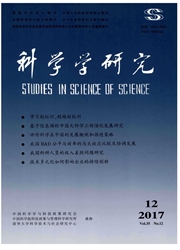

 中文摘要:
中文摘要:
对59个国家与地区在1990年和2002年的制造业绩效进行了评价,在此基础上分别以发达和发展中两类国家与地区为样本,通过多元回归分析,揭示两类样本中七类因素与制造业绩效的统计特征及其变化特点。实证结果表明,贸易、科技创新、能源环境、劳动力以及金融发展这五类因素对同类国家与地区间的制造业绩效差异具有较强的解释力;与1990年相比,发达国家与地区的制造业绩效同贸易、需求、能源环境、基础设施的相关性在增强,同金融发展、劳动力的相关性在下降;发展中国家与地区的制造业绩效则同各类因素的相关性呈现全面上升的态势。本文最后结合分析结果对中国制造业的发展提出了建议。
 英文摘要:
英文摘要:
At first, the manufacturing performance of 59 economies is measured at 1990 and 2002 year. On this base, the developed economies and developing economies are taken as two kinds of samples to analyze the statistical character and variable character between seven kinds of factors and manufacturing performance. We discover that trade, science and technology innovation, energy - environment, labor and finance development make potent explanation to the different of manufacturing performance. Comparing to 1990 year, the relativity increased between the performance of developing economies and trade, demand, energy - environment and physical infrastructure; the relativity decreased with finance development, labor. For the developing economies, the relativity increased between the performance and all nine kinds of factors. Moreover, some political advice is given.
 同期刊论文项目
同期刊论文项目
 同项目期刊论文
同项目期刊论文
 The evolvement and relevant factors of price discovery: A case study of cross-listed stocks in China
The evolvement and relevant factors of price discovery: A case study of cross-listed stocks in China A hybrid genetic and variable neighborhood descent algorithm for flexible job shop scheduling proble
A hybrid genetic and variable neighborhood descent algorithm for flexible job shop scheduling proble 期刊信息
期刊信息
